CESNI meeting on 20 April 2023
20/04/2023
The European Committee for drawing up Standards in the field of Inland Navigation (CESNI) met on 20 April 2023, in Strasbourg (France). Ms Marleen Coenen, representing Belgium, chaired the meeting. The CESNI adopted guidelines for environmentally friendly and efficient vessel operation (eco navigation). The Committee also approved the publication of a guide on cybersecurity in inland navigation and a summary of the differences between the 2021/1 and 2023/1 editions of the ES-RIS.

Source: Adobe Stock
Adoption of guidelines for eco navigation
In the field of professional qualifications, the Committee adopted guidelines for environmentally friendly and efficient vessel operation (eco navigation).
Boatmasters shall be able to consider economic and ecological aspects of the vessel operation in order to use the vessel efficiently and respect the environment. Moreover, trade unions, training institutes and also employers’ organisations stress the need for vocational training to keep up with skills that are demanded to operate a fleet that is undergoing energy transition and experiencing significant changes in technical and digital equipment on board. The guidelines detail the various competences as well as knowledge and skills needed. They are intended to be used in training programmes as good practices for an eco-efficient navigation. Their practical application by boatmasters for an eco-efficient navigation could lead to more than a 10% decrease in fuel consumption on board existing vessels, according to DST (Entwicklungszentrum für Schiffstechnik und Transportsysteme e.V.).
The guidelines will be published on the CESNI website.
Publication of a guide on cybersecurity and a summary on differences between ES-RIS 2021/1 and 2023/1
The April meeting was also the occasion to adopt two important documents in the field of information technologies:
- A good practice guide on cybersecurity in inland navigation, focusing on ports.
- A summary of the differences between the 2021/1 and 2023/1 editions of the ES-RIS, the European Standard for River Information Services.
The good practice guide is intended to provide an overview of cybersecurity risks, threats, and mitigation measures, primarily within the scope of inland navigation ports. The main objectives are for port stakeholders to understand the motivations and actors behind cyber-attacks, as well as the assets of ports to be considered when evaluating cybersecurity threats and risks. This guide also gives an overview of good practices for the implementation of cybersecurity risk mitigation measures.
This good practice guide was developed in partnership with the European Federation of Inland Ports (EFIP) and aims to be an accessible framework for all inland ports, regardless of their size or location in Europe.
The summary on differences between the 2021/1 and 2023/1 editions of the ES-RIS provides information on the main amendments. This makes it possible to efficiently identify the changes, thus facilitating implementation.
The summary is divided into 5 sections:
- amendments that do not affect the content;
- amendments to specifications relating to the electronic chart display and information system for inland navigation (Inland ECDIS);
- amendments to specifications relating to the vessel tracking and tracing system (VTT);
- amendments to specifications relating to notices to skippers (NtS);
- amendments to specifications relating to electronic ship reporting in inland navigation systems (ERI).
The guide and the summary will be published on the CESNI website.
Approval of a new observer State and new non-governmental organisations
During its April meeting, CESNI was pleased to grant the Republic of Moldova the status of Observer State. The Republic of Moldova is already a Member State of the Danube Commission and has had the status of candidate to the European Union since 23 June 2022. The Republic of Moldova has expressed its interest in inland navigation and its desire to contribute to its development. The Committee looks forward to Moldova’s participation in its activities.
The CESNI was also pleased to grant the Federation of European Maritime Associations of Surveyors and Consultants (FEMAS) and Hydrogen Europe the status of approved non-governmental organisations.
FEMAS has a long and wide experience in the field of marine and inland navigation, particularly regarding the aspects of construction, stability, technical requirements and nautical damage investigations. Its members are the national surveyors’ associations in Europe. The status of approved organisation will allow FEMAS to participate in CESNI’s future activities, especially by giving practical technical advice on new vessel technical requirements and possible improvement of implementation of ES-TRIN.
Hydrogen Europe is the European association representing the interest of the hydrogen industry and its stakeholders. Several Hydrogen Europe members are involved in pilot projects demonstrating the feasibility of hydrogen propulsion on inland vessels to explore decarbonisation solutions for inland waterway transport in Europe. This includes hydrogen producers as well as suppliers of hydrogen propulsion components such as fuel cells. The association has expertise in terms of storage and use of hydrogen and can provide advice on the standards needed for safety of inland vessels and for the crew members. The status of approved organisation will allow Hydrogen Europe to participate in CESNI’s future activities, especially in the field of vessel technical requirements and professional qualifications.
Participants in the meeting
The Committee meeting involved:
- 8 Member States: Austria, Belgium, Croatia, Czech Republic, France, Germany, the Netherlands and Switzerland;
- the European Commission, the Central Commission for the Navigation of the Rhine (CCNR) and the Moselle Commission;
- 3 approved organisations: IVR, ESO and EBU.
Next meeting
The Committee has scheduled its next meeting for 19 October 2023.

